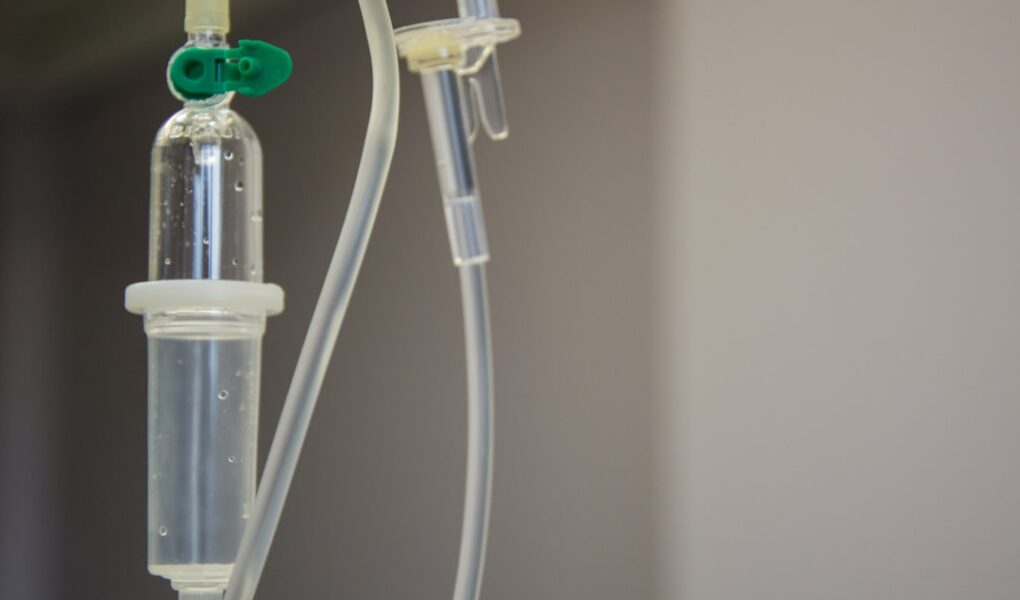Acne is a common skin condition that occurs when hair follicles become clogged with oil and dead skin cells. This can result in the formation of pimples, blackheads, or whiteheads. There are several factors that can contribute to the development of acne, including hormonal changes, genetics, and certain medications. Hormonal changes, such as those that occur during puberty or pregnancy, can lead to an increase in oil production, which can contribute to the development of acne. Genetics also play a role in acne development, as individuals with a family history of acne are more likely to experience the condition themselves. Additionally, certain medications, such as corticosteroids or lithium, can also contribute to the development of acne.
There are several different types of acne, each with its own characteristics and treatment options. The most common type of acne is known as acne vulgaris, which is characterized by the presence of blackheads, whiteheads, and pimples. Another type of acne is known as cystic acne, which is characterized by the presence of large, painful cysts beneath the skin. This type of acne can be particularly difficult to treat and may require the use of prescription medications. Other types of acne include hormonal acne, which is often associated with hormonal imbalances, and fungal acne, which is caused by an overgrowth of yeast on the skin. Understanding the causes and types of acne is important for developing an effective treatment plan.
Key Takeaways
- Acne is caused by excess oil production, clogged pores, bacteria, and inflammation, and can be classified as non-inflammatory (blackheads and whiteheads) or inflammatory (papules, pustules, nodules, and cysts).
- A daily skin care routine for acne-prone skin should include gentle cleansing, exfoliation, moisturizing, and sun protection, using non-comedogenic and oil-free products.
- When choosing products for acne, look for ingredients like salicylic acid, benzoyl peroxide, retinoids, and niacinamide, and avoid harsh or irritating ingredients like alcohol and fragrances.
- Effective treatments for acne include over-the-counter products, prescription medications, and in-office procedures like chemical peels, laser therapy, and microdermabrasion.
- Lifestyle changes to improve acne can include managing stress, eating a balanced diet, staying hydrated, getting enough sleep, and avoiding picking or squeezing pimples.
- Managing acne scars may involve treatments like microneedling, chemical peels, laser therapy, and dermal fillers, and using products with ingredients like vitamin C and retinoids.
- Seeking professional help for severe acne is important, as a dermatologist can provide personalized treatment plans, prescribe medications, and perform procedures to effectively manage the condition.
Daily Skin Care Routine for Acne-Prone Skin
Developing a daily skin care routine is essential for managing acne-prone skin. A good skin care routine can help to keep the skin clean and free of excess oil and dead skin cells, which can help to prevent the development of acne. When developing a skin care routine for acne-prone skin, it is important to choose products that are gentle and non-comedogenic, meaning they won’t clog pores. A basic skin care routine for acne-prone skin should include cleansing, exfoliating, and moisturizing. When cleansing the skin, it is important to use a gentle cleanser that is specifically formulated for acne-prone skin. Look for a cleanser that contains salicylic acid or benzoyl peroxide, as these ingredients can help to unclog pores and reduce inflammation.
Exfoliating the skin is also an important step in a daily skin care routine for acne-prone skin. Exfoliation helps to remove dead skin cells from the surface of the skin, which can help to prevent clogged pores and breakouts. When choosing an exfoliating product, it is important to look for one that contains gentle exfoliating ingredients, such as alpha hydroxy acids or beta hydroxy acids. Finally, moisturizing the skin is an essential step in a daily skin care routine for acne-prone skin. Many people with acne-prone skin are hesitant to use moisturizer, fearing that it will make their skin more oily and lead to breakouts. However, using a lightweight, non-comedogenic moisturizer can actually help to balance oil production and keep the skin hydrated without clogging pores.
Choosing the Right Products for Acne
When it comes to choosing the right products for acne, it is important to look for products that are specifically formulated for acne-prone skin. There are several key ingredients to look for when choosing products for acne, including salicylic acid, benzoyl peroxide, and retinoids. Salicylic acid is a beta hydroxy acid that works by exfoliating the skin and unclogging pores. It is often found in cleansers, toners, and spot treatments for acne. Benzoyl peroxide is an antibacterial ingredient that works by killing acne-causing bacteria on the skin. It is often found in cleansers, lotions, and spot treatments for acne. Retinoids are a type of vitamin A derivative that work by promoting cell turnover and preventing clogged pores. They are often found in prescription medications for acne, but can also be found in over-the-counter products.
In addition to these key ingredients, it is important to look for products that are labeled as non-comedogenic, meaning they won’t clog pores. This is especially important when choosing products such as moisturizers and makeup. It is also important to avoid products that contain potentially irritating ingredients, such as fragrances or dyes. When choosing products for acne, it is also important to consider the specific needs of your skin. For example, if you have sensitive skin, you may want to look for products that are formulated for sensitive skin or that contain soothing ingredients such as aloe vera or chamomile.
Effective Treatments for Acne
There are several effective treatments for acne that can help to reduce breakouts and improve the overall appearance of the skin. One of the most common treatments for acne is over-the-counter topical medications that contain ingredients such as salicylic acid or benzoyl peroxide. These medications work by unclogging pores and reducing inflammation on the skin. Another effective treatment for acne is prescription topical medications, such as retinoids or antibiotics. Retinoids work by promoting cell turnover and preventing clogged pores, while antibiotics work by killing acne-causing bacteria on the skin.
In addition to topical medications, oral medications can also be effective in treating acne. Oral medications for acne may include antibiotics, hormonal medications such as birth control pills, or isotretinoin, which is a powerful medication that is reserved for severe cases of acne. In some cases, procedures such as chemical peels or laser therapy may be recommended to help improve the appearance of the skin and reduce the frequency of breakouts. It is important to work with a dermatologist to determine the most effective treatment plan for your individual needs.
Lifestyle Changes to Improve Acne
In addition to using topical and oral medications to treat acne, making certain lifestyle changes can also help to improve the condition of the skin. One important lifestyle change that can help to improve acne is following a healthy diet. Some research suggests that certain foods may contribute to the development of acne, so making changes to your diet may help to reduce breakouts. In particular, it may be helpful to limit your intake of high-glycemic foods, such as sugary snacks and processed foods, as well as dairy products.
Another important lifestyle change that can help to improve acne is managing stress levels. Stress can trigger hormonal changes in the body that may contribute to the development of acne, so finding healthy ways to manage stress, such as through exercise or meditation, may help to reduce breakouts. Additionally, getting an adequate amount of sleep each night is important for overall skin health. Not getting enough sleep can lead to an increase in stress hormones, which can contribute to breakouts.
Managing Acne Scars
For many people who have struggled with acne, managing acne scars is an important part of their skincare routine. Acne scars can be a result of severe inflammation from deep cystic lesions or picking at blemishes. There are several different types of acne scars including ice pick scars (deep pits), boxcar scars (angular scars), rolling scars (wave-like depressions), and hypertrophic scars (raised scars). Managing these scars can be challenging but there are several treatment options available.
One common treatment option for managing acne scars is laser therapy. Laser therapy works by removing the top layer of skin and stimulating collagen production in the deeper layers of the skin. This can help to improve the appearance of acne scars over time. Another treatment option for managing acne scars is microneedling, which involves using a device with fine needles to create tiny punctures in the skin. This stimulates collagen production and can help to improve the appearance of acne scars.
Seeking Professional Help for Severe Acne
For individuals with severe or persistent acne, seeking professional help from a dermatologist is essential. A dermatologist can help to determine the underlying cause of your acne and develop a personalized treatment plan to address your specific needs. In some cases, prescription medications may be necessary to effectively manage severe acne. These may include oral medications such as antibiotics or isotretinoin, as well as prescription-strength topical medications.
In addition to medication, a dermatologist can also provide in-office treatments such as chemical peels or extractions to help improve the appearance of the skin and reduce breakouts. Working with a dermatologist can also help to prevent long-term scarring and discoloration that can result from severe acne. In some cases, a dermatologist may also recommend lifestyle changes or dietary modifications to help improve the condition of your skin.
In conclusion, understanding the causes and types of acne is essential for developing an effective treatment plan. A daily skincare routine for acne-prone skin should include cleansing, exfoliating, and moisturizing with non-comedogenic products. Choosing the right products for acne involves looking for key ingredients such as salicylic acid and benzoyl peroxide while avoiding potentially irritating ingredients.
Effective treatments for acne include topical and oral medications as well as procedures like chemical peels or laser therapy. Making lifestyle changes such as following a healthy diet and managing stress levels can also help improve acne. Managing acne scars may involve treatments like laser therapy or microneedling while seeking professional help from a dermatologist is essential for severe cases of acne.




